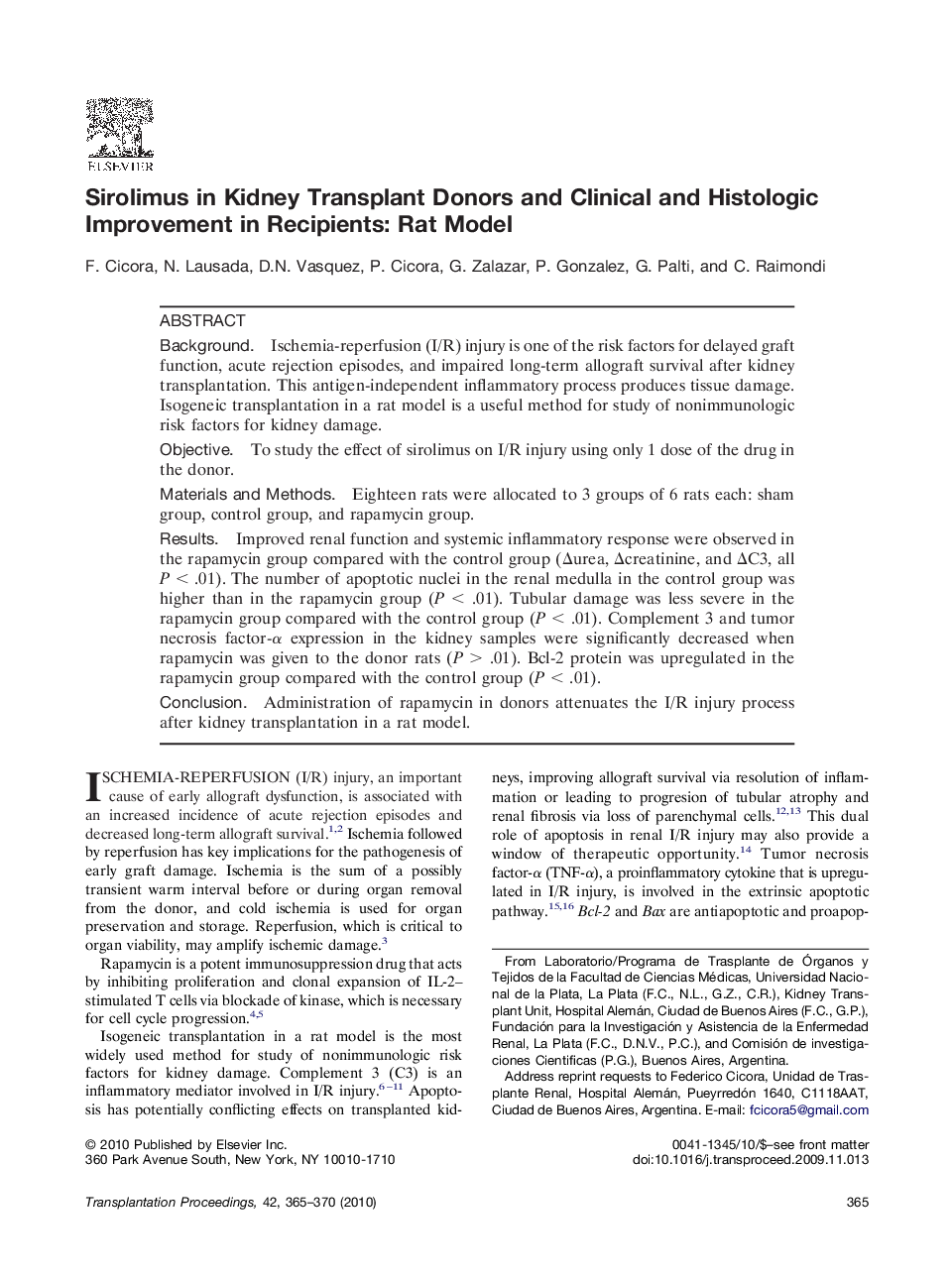| Article ID | Journal | Published Year | Pages | File Type |
|---|---|---|---|---|
| 4260890 | Transplantation Proceedings | 2010 | 6 Pages |
BackgroundIschemia-reperfusion (I/R) injury is one of the risk factors for delayed graft function, acute rejection episodes, and impaired long-term allograft survival after kidney transplantation. This antigen-independent inflammatory process produces tissue damage. Isogeneic transplantation in a rat model is a useful method for study of nonimmunologic risk factors for kidney damage.ObjectiveTo study the effect of sirolimus on I/R injury using only 1 dose of the drug in the donor.Materials and MethodsEighteen rats were allocated to 3 groups of 6 rats each: sham group, control group, and rapamycin group.ResultsImproved renal function and systemic inflammatory response were observed in the rapamycin group compared with the control group (Δurea, Δcreatinine, and ΔC3, all P < .01). The number of apoptotic nuclei in the renal medulla in the control group was higher than in the rapamycin group (P < .01). Tubular damage was less severe in the rapamycin group compared with the control group (P < .01). Complement 3 and tumor necrosis factor-α expression in the kidney samples were significantly decreased when rapamycin was given to the donor rats (P > .01). Bcl-2 protein was upregulated in the rapamycin group compared with the control group (P < .01).ConclusionAdministration of rapamycin in donors attenuates the I/R injury process after kidney transplantation in a rat model.
